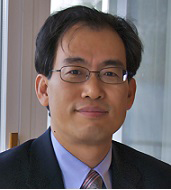
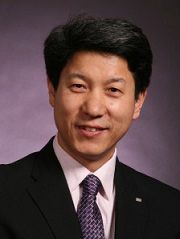
It gives us great pleasure to welcome you to the 24th International Conference on Computer Communications and Networks (ICCCN) held at Las Vegas, USA, on August 3-6, 2015. Since its inception in 1991, ICCCN has been very successful in bringing together a tremendous and rich diversity of authors, researchers and speakers from academia, industry, and government all over the world to share ideas and latest research outcomes in the wide spectrum of communications and networking areas.
The success would not have been possible without the extensive contributions from more than 1000 volunteers. We would like to acknowledge the tremendous efforts of the Technical Program Committee Chairs, Aaron Striegel (University of Notre Dame, USA) and Kewei Sha (Oklahoma City University, USA), for making an outstanding technical program. The four-day program features three keynote talks and two plenary panels given by world-renowned scholars covering various hot research topics, over 88 oral paper presentations selected from 352 submissions to the main conference and 38 oral paper presentations in five workshops. A Best Paper Award will be given at the conference to the authors, which is recommended by the Best Paper Selection Committee.
We thank Mike Wittie (Montana State University, USA) and Wei Cheng (Virginia Commonwealth University, USA), the Workshop Chairs, Habib M. Ammari (University of Michigan-Dearborn, USA) and Liqiang Zhang (Indiana University – South Bend, USA), the Publicity Chairs, Bo Sheng (University of Massachusetts – Boston, USA) and Bin Tang (California State University Dominguez Hills, USA), the Publication Chairs, Song Fu (University of North Texas, USA), the Travel Grant Chair, and Chenren Xu (Carnegie Mellon University, USA), the Web Chair.
We are very grateful to all technical program track chairs, along with Technical Program Committee members and reviewers, who have been working around the clock to make the whole process very smooth.
Special thanks to Keynote Speakers Ian F. Akylidiz, Tom Hou, and Benson Schliesser for their insightful vision on 5G Cellular Systems, Wireless Networking for Cyber Physical Systems, and Overlay Networking in Software-Defined Networks. We appreciate the generosity of our sponsors: IEEE, IEEE Communications Society, and NSF. We also thank Dr. E. K. Park, the Chair of the ICCCN Steering Committee, for his constant support all the time.
Finally, we thank all conference participants for making ICCCN 2015 a success, and hope that you have an enjoyable and fruitful stay in Las Vegas.
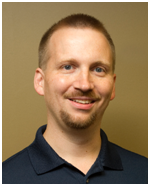
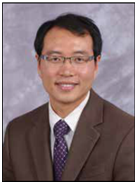
Welcome to ICCCN 2015! ICCCN has established itself as a worldwide reference for the dissemination of high-quality research in all aspects of computer communications and networking, and for fostering interaction and exchange of ideas.
ICCCN 2015 was fortunate to attract a high interest among the community, and the main conference received 352 submissions from 36 countries in five continents. The submissions span twelve tracks. The high number of submissions provided an excellent opportunity for a high-quality program but also called for a demanding and laborious paper evaluation process. The 380 members of the Technical Program Committee worked efficiently and responsibly under tight time constraints to produce at least three reviews for each paper that provided the basis for the final paper selection.
The reviewing and selection process led to 88 papers resulting in an acceptance rate of 25%. Given the large number of submitted manuscripts and the tight time and space constraints, many strong submissions could not be accepted. To allow the conference participants to benefit from further worthwhile and stimulating research results, 38 papers were accepted for presentation at the workshops co-located with the main conference.
The main program of ICCCN 2015 covers three days and includes streams of up to three parallel sessions. The program is further enriched by three keynote presentations and two plenary panel discussions offered by world-renowned researchers in the field. The main program is also complemented by a diverse set of high-quality workshops.
We are grateful to all authors who trusted us with their work; without them there would be no conference. The final result would not have been possible without the dedication and hard work of many colleagues. Special thanks are due to the outstanding track chairs, workshop chairs, the members of the Technical Program Committees, the General Chairs, and to all external referees for the quality and depth of the reviews, and their sense of responsibility and responsiveness under very tight deadlines.
- Min Song, Michigan Technological University, USA
- Zhisheng Niu, Tsinghua University, China
- Aaron Striegel, University of Notre Dame, USA
- Kewei Sha, Oklahoma City University, USA
Track on Cognitive, Cellular, and Mobile Networks (CCM)
Track on Communication Architecture, Algorithms, Modeling and Evaluation (CAAME)
Track on Data centers and Big Data Computing (DCBC)
Track on Green Networks and Sustainable Computing (GREEN)
Track on Grid, Cloud, Internet and Peer-to-peer Computing and Communication (GCIP)
Track on Internet of Things (IoT)
Track on Multimedia and Real-Time Networking (MRN)
Track on Security, Privacy, and Trust (SPT)
Track on Sensor/Embedded Networks and Pervasive Computing (SNPC)
Track on Software Defined Networks and Network Testing/Deployment (SDN)
Track on Wireless LAN, Ad Hoc, and Mesh Networks (WAM)
Track on Hot Topics in Networking (HOT)
- Mike Wittie, Montana State University, USA
- Wei Cheng, Virginia Commonwealth University, USA
- Habib M. Ammari, University of Michigan-Dearborn, USA
- Liqiang Zhang, Indiana University – South Bend, USA
- Song Fu, University of North Texas, USA
- E. K. Park, California State University-Chico, USA
- Bo Sheng, University of Massachusetts – Boston, USA
- Bin Tang, California State University Dominguez Hills, USA
- Chenren Xu, Carnegie Mellon University, USA
Track on Cognitive, Cellular, and Mobile Networks (CCM)
- Songqing Zhao, Apple
- Donghyun Kim, North Carolina Central University
- Tao Shu, Oakland University
- Youping Zhao, Beijing Jiaotong University
- Baoxian Zhang, University of Chinese Academy of Sciences
- Jie Zeng, Tsinghua University
- Ming Li, University of Nevada, Reno
- Lifeng Lai, Worcester Polytechnic Institute
- Brendan Mumey, Computer Science, Montana State University
- Roberto Rojas-Cessa, New Jersey Institute of Technology
- Richard Wolff, Montansa State University
- Ming Li, Utah State University
- Xiaohua Xu, The University of Teledo
- Qing Yang, Montana State University
- Pan Li, Mississippi State University
- Yi Xu, Auburn University
- Ting Zhu, Binghamton University
- Rose Qingyang Hu, Utah State University
- Shiny Abraham, Tuskegee University
- Wei Cheng, Virginia Commonwealth University
- Yu Wang, Auburn University
- Miao Pan, Mississippi State University
- Shaowei Wang, Nanjing University
- Gang Zhou, College of William and Mary
- Yanming Shen, DLUT
- Arun Thapa, Tuskegee University
- Yanxiao Zhao, South Dakota School of Mines and Technology
- Jie Yang, Florida State University
- Shucheng Yu, University of Arkansas at Little Rock
- Jiaqi Gong, University of Virginia
- Krishna K. Venkatasubramanian, Worcester Polytechnic Institute
- Pasquale Pace, University of Calabria
- Shaoen Wu, Ball State University
- Liang Hong, Tennessee State University
- Fan Wu, Shanghai Jiao Tong University
- Yi Shi, Intelligent Automation, Inc.
- Kai Zeng, George Mason University
- Allen Mackenzie, Virginia Tech
- Tong Liu, VMware
- Xiaohang Li, Purdue University
- Jiadi Yu, Shanghai Jiaotong University
- Haris Volos, University of Arizona
- Alireza Babaei, CableLabs
- Anand Seetharam, California State University Monterey Bay
- Vasos Vassiliou, University of Cyprus
- Reza Vaghefi, Blue Danube Labs
Track on Communication Architecture, Algorithms, Modeling and Evaluation (CAAME)
- Jun Bi, Tsinghua University, China
- Shih-Hao Chang, Tamkang University, Taiwan
- Wei Dong, Zhejiang University, China
- Qiang Duan, The Pennsylvania State University, USA
- Mohamed Eltoweissy, Virginia Polytechnic Institute and State University, USA
- Gaolei Fei, University of Electronic Science and Technology of China
- Zongming Fei, University of Kentucky, USA
- Mario Gerla, University of California – Los Angeles, USa
- Abhimanyu Gosain, BBN Technologies
- Jim Griffioen, University of Kentucky
- Guangmin Hu, University of Electronic Science and Technology of China
- Jinling Hu, Chinese Academy of Telecommunication Technology
- Yu Hua, Huazhong University of Science and Technology, China
- Xi Ju, GM Research/Savari, USA
- Keqin Li, State University of New York at New Paltz, USA
- Tong Li, Chinese Academy of Sciences
- Wenzhong Li, Nanjing University, China
- Jason Liu, Florida International University
- Yaoqing Liu, Clarkson University, USA
- Kate C.-J. Lin, Academia Sinica, Taiwan
- Supeng Leng, University of Electronic Science and Technology, China
- Yong Li, Tsinghua University, China
- Shan Lin, Temple University, USA
- Xiaohui Liu, Wayne State University, USA
- Jim Martin, Clemson, USA
- Vinayak Naik, Indraprastha Institute of Information Technology, India
- Antonio J. Peña, Argonne National Laboratory
- Juan Fernando Pérez, Imperial College London, UK
- Colin Perkins, University of Glasgow, Scotland
- Ravi Prakash, University of Texas – Dallas, USA
- Jayanthi Rao, Ford Research
- Robert Ricci, University of Utah
- Alex Sprintson, Texas A&M University, USA
- Vicraj Thomas, BBN Technologies
- Dirk Trossen, InterDigital, UK
- Yuehua Wang, Wayne State University, USA
- Qiao Xiang, McGill University
- Yufeng Xin, RENCI
- Kaiqi Xiong, Rochester Institute of Technology
- Chuan Yue, University of Colorado Colorado Springs, USA
- Wenjiee Zeng, Google
- Xiaodan Zhang, Chinese Academy of Sciences, China
- Gang Zhou, College of William and Mary, USA
- Ilya Baldin, RENCI
- Simone Silvestri, Missouri University of Science and Technology, USA
Track on Data Centers and Big Data Computing (DCBC)
- Yong Chen, Texas Tech University, USA
- Ada Gavrilovska, Georgia Tech, USA
- Martin Swany, Indiana University, USA
- Jun Wang, University of Central Florida, USA
- Hao Wang, Virginia Tech, USA
- Patrick Bridges, University of New Mexico, USA
- Malathi Veeraraghavan, University of Virginia, USA
- Mark Gardner, Virginia Tech, USA
- Samee Khan, University of North Dakota, USA
- Laurent Lefevre, INRIA, France
- Lei Tian, University of Nebraska, USA
- Dantong Yu, Brookhaven National Lab, USA
- Micah Beck, University of Tennessee
- Patrick Bridges, University of New Mexico
- Junda Liu, Google
- Kaikai Liu, University of Florida
- Rajesh Narayanan, Dell Research
- Judy Qiu, Indiana University
- Hao Wang, Virginia Tech
- Jianfeng Zhan, Chinese Academy of Sciences
Track on Green Networks and Sustainable Computing (GREEN)
- Jenhui Chen, Chang Gung University, Taiwan
- Jianxin Chen, Nanjing University of Posts and Telecommunications, China
- Qian Dong, University of California, San Diego, USA
- Christoph Fetzer, Technical University of Dresden, Germany
- Alexandre Guitton, Blaise Pascal University, France
- Klaus Hoffman, TU Darmstadt, Germany
- Wei Li, University of Victoria, Canada
- Kaoru Ota, Muroran Institute of Technology, Japan
- Bo Rong, Communications Research Centre, Canada
- Michael Schiffers, Ludwig-Maximilians-Universität München, Germany
- Alexander Schill, Technical University of Dresden, Germany
- Wei Xin, Nanjing University of Posts and Telecommunications, China
- Shengjie Xu, University of Nebraska-Lincoln, USA
- Jun Yan, Nanjing University of Posts and Telecommunications, China
- Feng Ye, University of Nebraska-Lincoln, USA
Track on Grid, Cloud, Internet and Peer-to-peer Computing and Communication (GCIP)
- Ahmad Afsahi, Queen’s University, Canada
- Zhipeng Cai, Georgia State University, USA
- Tingting Chen, Oklahoma State University, USA
- David Chiu, University of Puget Sound, USA
- Feng Deng, Clemson University
- Tom Z. J. Fu, Advanced Digital Sciences Center (ADSC), Singapore
- Longjiang Guo, Heilongjiang University, China
- Hai Jin, Huazhong University of Science and Technology, China
- Xuanwen Luo, R & D, Sandvik Mining and Construction, USA
- Yan Ma, BUPT, China
- Jia Rao, University of Colorado at Colorado Springs, USA
- Weidong Shi, University of Houston, USA
- Fumio Teraoka, Keio University, Japan
- Gaogang Xie, Institute of Computing Technology, China Academy of Science, China
- Lin Ye, Harbin Institute of Technology, China
- Lei Yu, Clemson University, USA
- Qi Yu, Rochester Institute of Technology, USA
- Xingong Zhang, Peking Univ., China
- Tongping Liu, University of Texas at San Antonio, USA
- Xiaoyi Lu, The Ohio State University, USA
- Rajendra Boppana, University of Texas at San Antonio, USA
- Yanmin Zhu, Shanghai Jiao Tong University, China
- Anthony Chronopoulos, University of Texas at San Antonio, USA
- Kang Chen, Clemson University, USA
- Ming Zhao, Florida International University, USA
- Weijun Xiao, Virginia Commonwealth University, USA
- Paul Rad, Rackspace Inc, USA
- Xiaowen Chu, Hong Kong Baptist University, Hong Kong
- Haiyang Wang, University of Minnesota at Duluth, USA
- Yang Song, IBM Research, USA
- Gilles Fedak, INRIA, France
- Martin Reisslein, Arizona State University , USA
- Mea Wang, University of Calgary, Canada
- Chen Qian, University of Kentucky, USA
- Hidemoto Nakada, AIST, Japan
- Ramin Yahyapour, Georg-August University of Göttingen, Germany
- Qinghua Li, University of Arkansas, USA
- Srihari Nelakuditi, University of South Carolina, USA
- Shrideep Pallickara, Colorado State University, USA
- Feng Wang, The University of Mississippi, USA
Track on Internet of Things (IoT)
- Miriam Capretz, University of Western Ontario, Canada
- Hakima Chaouchi, Telecom Sud Paris, France
- Mario Dantas, Federal University of Santa Catarina (UFSC), Brazil
- Rinku Dewri, University of Denver, USA
- Oscar Esparza, UPC, Spain
- Scott Fowler, Linkoping University, Sweden
- Jassim Happa, University of Oxford, United Kingdom
- Saul Hernandez, Instituto Nacional de Astrofísica, Óptica y Electrónica, Mexico
- Slim Kallel, University of Sfax, Tunisia
- Myriam Lamolle, LIASD-Université Paris8, IUT de Montreuil, France
- Cesar Marin, University of Manchester, United Kingdom
- Hassnaa Moustafa, Intel Labs, USA
- Mubashir Rehmani, COMSATS Institute of Information Technology, Pakistan
- Joel Rodrigues, University of Beira Interior, Portugal
- Romain Rouvoy, University of Lille 1, France
- Marcos Silveira, Luxembourg Institute of Science and Technology (LIST), Luxembourg
- Vijay Sivaraman, University of New South Wales, Australia
- Nenad Stojanovic, Nissatech, Serbia
- Pedro Teodoro, University of Granada, Spain
- Diego Touceda, University Carlos III of Madrid, Spain
- Suleyman Uludag, University of Michigan – Flint, USA
- Zhiwei Yan, CNNIC, China
- Wenjia Li, NYIT, USA
- Oladayo Bello, Monash University, South Africa campus, South Africa
Track on Multimedia services and Real-time Networking (MRN)
- Panagiotis Georgopoulos, Swiss Federal Institute of Technology in Zürich, Switzerland
- Hoon Lee, Changwon National University, South Korea
- Feng Li, Indiana University-Purdue University Indianapolis, USA
- Sachin Shetty, Tennessee State University, USA
- Alex Sprintson, Texas A&M University, USA
- Songqing Chen, George Mason University, USA
- Yu Cheng, Illinois Institute of Technology, USA
- Xiaojiang Du, Temple University, USA
- Yanggon Kim, Towson University, USA
- Xinyu Yang, Xi’an Jiaotong University, P.R. China
- Qingquan Zhang, University of Maryland Baltimore County, USA
- Houbing Song, West Virginia University Institute of Technology, USA
- Alexander Wijesinha, Towson University, USA
- Ziqian Dong, New York Institute of Technology, USA
- Jie Lin, Xi’an Jiaotong University, P.R. China
- Song Guo, The University of Aizu, Japan
- Chao Lu, Towson University, USA
- Anyi Liu, Indiana University–Purdue University Fort Wayne (IPFW), USA
- Zhou Lu, University of Memphis, USA
- Jian Ren, Michigan State University, USA
- Wei Wang, San Diego State University, USA
- Yang Xiao, The University of Alabama, USA
- Zhenhai Duan, Florida State University, USA
- Xinwen Fu, University of Massachusetts Lowell, USA
- Rose Hu, Utah State University, USA
- Kun Hua, Lawrence Technological University, USA
- Zhen Ling, Southeast University, P.R. China
- Yu Chen, Binghamton University, State University of New York, USA
- Yingfei Dong, University of Hawaii, USA
- Sanghwan Lee, Kookmin University, South Korea
- Sejun Song, University of Missouri-Kansas City, USA
- Kaiqi Xiong, Rochester Institute of Technology, USA
- Hui Zang, Guavus Inc, USA
Track on Security, Privacy, and Trust (SPT)
- Jun Bi,Tsinghua University, China
- Fei Chen, Michigan State University, USA
- Yu Chen, State University of New York – Binghamton, USA
- Yingying Chen, Stevens Institute of Technology, USA
- Xinwen Fu, University of Massachusetts Lowell, USA
- Haipengdai Haipengdai, Nanjing University, China
- Jinsong Han, Hong Kong University of Science and Technology, Hong Kong
- Muhammad Ilyas, National University of Science and Technology, Pakistan
- Sandeep Kulkarni, Michigan State University, USA
- Keqiu Li, Dalian University of Technology, China
- Yao Liu, University of South Florida, USA
- Rui Li, Nanjing University, China
- Sanglu Lu, State Key Laboratory for Novel Software Technology, Nanjing University, China
- Hafiz Malik, University of Michigan – Dearborn, USA
- Satyajayant Misra, New Mexico State University, USA
- Daniela Oliveira, University of Florida, USA
- Chen Qian, University of Kentucky, USA
- Nitesh Saxena, University of Alabama at Birmingham, USA
- Zubair Shafiq, The University of Iowa, USA
- Muhammad Shahzad, Michigan State University, USA
- Bo Sheng, University of Massachusetts Boston, USA
- Zhou Su, Waseda University, Japan
- Lu Su, SUNY Buffalo, USA
- Kun Sun, College of William and Mary, USA
- Willy Susilo, University of Wollongong, Australia
- Chiu Tan, Temple University, USA
- Chen Tian, Huazhong University of Science and Technology, China
- Shambhu Upadhyaya, SUNY at Buffalo, USA
- Wei Wang, State Key Laboratory for Novel Software and Technology, Nanjing University, China
- Guiling Wang, New Jersey Institute of Technology, USA
- Qian Wang, Wuhan University, China
- Cong Wang, City University of Hong Kong, Hong Kong
- Weichao Wang, University of North Carolina at Charlotte, USA
- Kui Wu, University of Victoria, Canada
- Wenyuan Xu, University of South Carolina, USA
- Shouhuai Xu, University of Texas at San Antonio, USA
- Qing Yang, Montana State University, USA
- Kan Yang, University of Waterloo, USA
- Jie Yang, Florida State University, USA
- Bingsheng Zhang, National and Kapodistrian University of Athens, Greece
- Sheng Zhong, SUNY Buffalo, USA
- Haojin Zhu, Shanghai Jiao Tong University, China
- Xukai Zou, Indiana Univeristy Purdue University Indianapolis, USA
- Zhenxin Zhan, Juniper Networks, USA
- Muhammad Zeeshan, National University of Science and Technology, Pakistan
Track on Sensor/Embedded Networks and Pervasive Computing (SNPC)
- Raheem Beyah, Georgia Institute of Technology, USA
- Hao Che, University of Texas at Arlington, USA
- Marco Di Felice, University of Bologna, Italy
- Raghu Ganti, IBM Research, USA
- Ethiopia Nigussie, University of Turku, Finland
- Shan Lin, Temple University, USA
- Jun Luo, Nanyang Technological University, Singapore
- Manki Min, South Dakota State University, USA
- Yanwei Wu, Illinois Institute of Technology, USA
- Paolo Giaccone, Politecnico di Torino, Italy
- Wee Seng Soh, National University of Singapore, Singapore
- Evsen Yanmaz, University of Klagenfurt, Austria
- Israat Tanzeena Haque, University of Alberta, Canada
- Chunsheng Xin, Old Dominion University, USA
- Dejun Yang, Colorado School of Mines, USA
- Danella Zhao, University of Louisiana at Lafayette, USA
- Ruiyun Yu, Northeastern University, China
- Shijie Zhou, University of Electronic Science and Technology of China, China
- Fan Wu , Shanghai Jiao Tong University , China
- Faisal Karim Shaikh, Mehran UET, Jamshoro, Pakistan
- Ahmed Khattab, Cairo University, Egypt
- Pramita Mitra, Ford Research and Advanced Engineering, USA
- Feng Lin, Sichuan University, China
- Sasitharan Balasubramaniam, Tampere University of Technology, Finland
- Yang Liu, Beijing Institute of Technology, China
- Zhengjiang Li, Nanyang Technological University, Singapore
Track on Software Defined Networks and Network Testing/Deployment (SDN)
- Prasad Calyam, University of Missouri-Columbia, USA
- Kai Chen, Hong Kong University of Science & Technology, Hongkong
- Russ Clark, Georgia Institute of Technology, USA
- Narayan Desai, Argonne National Lab, USA
- Guifei Gu, Texas A&M University, USA
- Hongxin Hu, Clemson University, USA
- Ted Kwon, SNU, Korea
- Will Liu, Huawei, China
- JongWon Kim, GIST, Korea
- Diego Lopez, Telefónica I+D, Spain
- Yan Ma, BUPT, China
- David Meyer, Brocade, USA
- Inder Monga, Energy Sciences Network / Lawrence Berkeley National Lab, USA
- Yasuo Okabe, Kyoto University, Japan
- Chen Qian, University of Kentucky, USA
- Nicholas Race, Lancaster University, UK
- Alex Sprintson, Texas A&M University, USA
- Filip De Turck, Ghent University-iMinds, Belgium
- Chunming Wu, Zhejian University, China
- Gaogang Xie, China Academy of Science, China
- Guang Yao, Baidu, China
- Nicholas Bastin, University of Houston, USA
- Henrik Thostrup Jensen, NORDUnet, Denmark
Track on Wireless LAN, Ad Hoc and Mesh Networks (WAM)
- Bo Rong, Communications Research Centre Canada, Canada
- Danda Rawat, Georgia Southern University, USA
- Guodong Zhao, Univ. Electronic Science & Technology of China, China
- Honggang Wang, University of Massachusetts, USA
- Jonathan Backens Christopher, Newport News University, USA
- Jone Gu Hubei, University of Arts and Science China
- Jun Huang Chongqing, University of Posts and Telecomm China
- Kennie Jones, NASA Langley Research Center, USA
- Manish Wadhwa, Salem State University, USA
- Ming Li, Utah State University, USA
- Prosanta Paul, Old Dominion University, USA
- Qing-An Zeng, North Carolina A&T State University, USA
- Qun Li, College of William and Mary, USA
- Sachin Shetty, Tennessee State University, USA
- Sharif Mullah, Old Dominion University, USA
- Sriram Chellappan, Missouri Univ. of Science and Technology, USA
- Tao Shu, Oakland University, USA
- Wei Wang, San Diego State University, USA
- Yanxiao Zhao, South Dakota School of Mines and Technology, USA
- Yi Song, Wichita State University, USA
- Yonghe Liu, University of Texas, Arlington USA
- Youssif Al-Nashif, Old Dominion University, USA
- Yu Wang, University of North Carolina at Charlotte, USA
- Zhenghao Zhang, Florida State University, USA
Track on Hot Topics in Networking (HOT)
- Kai Zeng, George Mason University
- Wei Cheng, VCU
- Amit Pande, UC-Davis
- Tim Wood, George Washington
- Zhiyun Qian, University of California, Riverside
- Mayutan Arumaithurai, Univ. of Goettingen
- Yianis Psaras, University College London
- Mike Wittie, Montana State University
- Khaled Harras, CMU-Qatar
- Lara Deek, University of California, Santa Barbara
- Cheng-Hsin Hsu, National Tsing Hua University, Taiwan
- Aiman Erbad, Qatar University
- Marwan Fayed, University of Stirling
- Ruben Torres, Narus Inc.
- Yanhua Li, Huawai
- DJ Yang, Colorado School of Mines
- Noa Zilberman, University of Cambridge
- Yanyan Zhuang, University of British Columbia
- Israat Tanzeena Haque, University of Alberta
- Gautam Thakur, ORNL
- Karthik Dantu, SUNY Buffalo
- Saeed Moghaddam, Samsung Research
- Myungjin Lee, University of Edinburgh
- Minseok Kwon, Rochester Institute of Technology
- Ionut Trestian, Amazon
- Zhichun Li, NEC Labs
- Amit Mondal, Google
- Raghu Ganti, IBM Research
- Dong Wang, Notre Dame
- Yong Yang, Phillips Labs
- Lu Su, SUNY Buffalo
- Richard (Tianbai) Ma, National University of Singapore, SINGAPORE
- Patrick Lee, Chinese University of Hong Kong, HONG KONG
- Dimitrios Koutsonikolas, SUNY Buffalo, USA
- Di Niu, University of Alberta, CANADA
External Reviewers
- Neil Gong
- Alireza Ghasempour
- Anu Mercian
- Babins Shrestha
- Baozhu Li
- Bei Xie
- Bingyang Liu
- Bo Fan
- Bo Zhang
- Bowen Zhou
- Brett Meadows
- Charalampos Rotsos
- Chenxi Qiu
- Hongyi Sun
- Huazhe Wang
- Hyunbum Kim
- Jeffrey Wildman
- Jian Lin
- Jiaqiang Liu
- Jie Zhang
- Jingyu Hua
- Jinwei Liu
- Li Qi
- Licheng Wang
- Lina Pu
- Liqiang Zhang
- Liuhua Chen
- Longxin Zhang
- Maliheh Shirvanian
- Manar Mohamed
- Mark Schmidt
- Mengxing Cheng
- Michael Lin
- Mingjie Feng
- Mohammad Abu Obaida
- Mohammad Saiful Islam
- Na Liu
- Nicholas Hart
- Ouyangaijia Aijia
- Pengfei Ren
- Pengfei Zuo
- Po-Yen Chen
- Preethi Srinivasan
- Chuan Li
- Chuhan Gao
- Daniel Graham
- David Formby
- David T. Nguyen
- Di Xie
- Dibya Mukhopadhyay
- Dong Li
- Enrica Zola
- Fan Wu
- Fei Chen
- Francesco Restuccia
- Ge Peng
- Qi Zhang
- Qing Jiang
- Qing Yang
- Quanxin Zhao
- Rejaul Chowdhury
- Rong Rong
- Rui Han
- Rui Zhao
- S Abhishek Anand
- S. Mahdieh Ghazimirsaeed
- Sajad Khorsandroo
- Salman Ali
- Sang Shin Jung
- Sergi Reñé
- Shaohui Wang
- Shaoyong Du
- Shengli Wan
- Shukun Yang
- Song Wu
- Srikar Tati
- Tao Wang
- Tooska Dargahi
- Wang Guodong
- Wang Xiang
- Weihua Zheng
- Wei-Liang Shen
- Weiqing Li
- Wenjie Hu
- Wolfgang Braun
- Xiangping Bu
- Giovani Rimon Abuaitah
- Giovani Rimon Abuaitah
- Guoqi Luo
- Guoqing Xiao
- Guoxin Liu
- Haitao Zhu
- Hana Khamfroush
- Hayang Kim
- He Sun
- Hongcheng Tian
- Hongkun Yang
- Hongyang Zhao
- Xiaofei Liao
- Xiaojing Liao
- Xiaoqiang Ma
- Ximeng Liu
- Xin Li
- Xin Qi
- Xinhua Xiao
- Xu Zheng
- Xuanhua Shi
- Yakun Wang
- Yan Yan
- Yangyang Wang
- Yanmin Gong
- Ye Yu
- Yiran Xu
- Yishuai Chen
- Yong Niu
- Yongsen Ma
- You Wang
- Yousef Dashti
- Yu Chen
- Yu Luo
- Yuanyuan Sun
- Yuhua Lin
- Yuming Xu
- Yunkai Wei
- Yunlong Mao
- Zhaogeng Li
- Zhenyu Shen
- Zhenyu Zhou
- Zhifeng He
- Zhuozhao Li
5G Cellular Systems: Research Challenges
Prof. IAN F. AKYILDIZ
Broadband Wireless Networking Lab
School of Electrical and Computer Engineering
Georgia Institute of Technology
Atlanta, GA 30332, USA
URL: http://www.ece.gatech.edu/research/labs/bwn
Abstract: In order to meet the ever-growing need for wireless data and services, 5G cellular systems are advocating fundamental advances in both utilizing the radio access spectrum efficiently and providing efficient data and service delivery through new system architectures. New research pillars are set for 5G cellular systems spanning over the next 15 years. In particular, the objectives for 5G cellular systems are achieving the ultra high capacity (1000x capacity/km2), ultra high data rates (100x), always connected to best networks, high mobile cyber security, energy savings (90%) and enormous cost reduction, reduced latency (RAN latency less than 1ms), flexible network architectures (software defined networking) and connection of Billions of Things and People (7 billion people and 7 trillion things). In this talk these research pillars are explained in detail and open research challenges are presented.
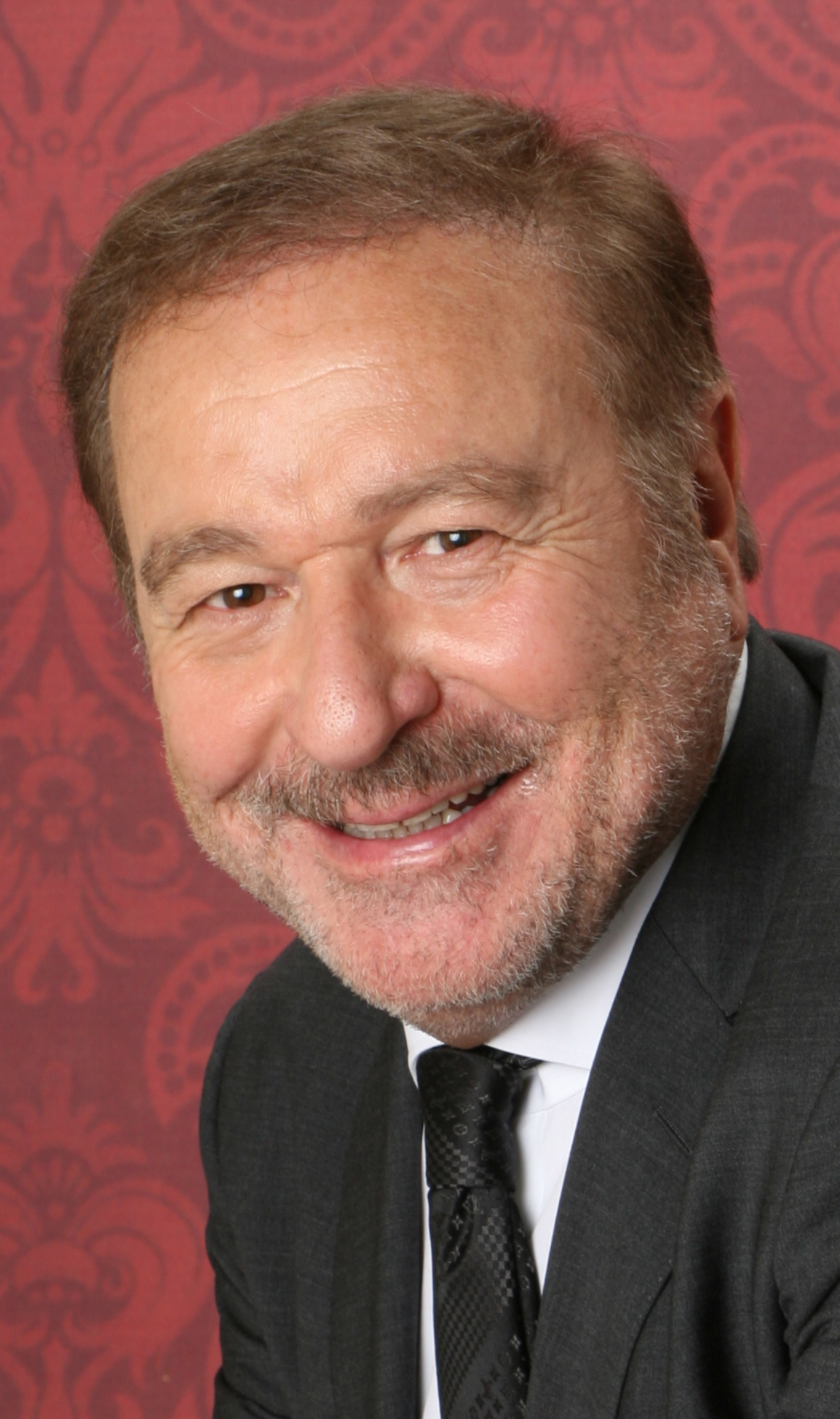
Dr. I. F. AKYILDIZ received his BS, MS, and PhD degrees in Computer Engineering from the University of Erlangen-Nuernberg, Germany, in 1978, 1981 and 1984, respectively. Currently, he is the Ken Byers Chair Professor with the School of Electrical and Computer Engineering, Georgia Institute of Technology, Director of the Broadband Wireless Networking Laboratory and Chair of the Telecommunications Group. He is an Honorary Professor with School of Electrical Engineering at the Universitat Politecnica de Catalunya, and Director of N3Cat (NaNoNetworking Center in Catalunya) in Barcelona, Spain, since June 2008. Dr. Akyildiz is also the Finnish Distinguished Professor with Tampere University of Technology, Tampere, Finland since January 2013.
He is the Editor-in-Chief of Computer Networks (Elsevier) Journal since 2000, the founding Editor-in-Chiefs of the Ad Hoc Networks Journal (2003), Physical Communication (PHYCOM) Journal (2008), and Nano Communication Networks (NANOCOMNET) Journal (2010) all published by Elsevier.
Dr. Akyildiz is an IEEE FELLOW (1996) and an ACM FELLOW (1997). He received the 1997 IEEE Leonard G. Abraham Prize award and the 2003 Best Tutorial Paper Award and the Best Paper Awards at IEEE ICC, June 2009 and IEEE Globecom 2010 conferences (all IEEE Communications Society).
He received the “Don Federico Santa Maria Medal” for his services to the Universidad of Federico Santa Maria in Chile in 1986. He served as a National Lecturer for ACM from 1989 until 1998 and received the ACM Outstanding Distinguished Lecturer Award for 1994. Dr. Akyildiz received the 2002 IEEE Harry M. Goode Memorial award (IEEE Computer Society) and the 2003 ACM SIGMOBILE Outstanding Contribution Award for his “pioneering contributions in the area of mobility and resource management for wireless communication networks”.
Dr. Akyildiz received the 2004 Georgia Tech Faculty Research Author Award for his “outstanding record of publications of papers between 1999-2003″. He also received the 2005 Distinguished Faculty Achievement Award from School of ECE, Georgia Tech, and the Georgia Tech Outstanding Doctoral Thesis Advisor Award for his 20+ years service and dedication to Georgia Tech and producing outstanding PhD students. He also received the 2009 ECE Distinguished Mentor Award by the Georgia Tech School of Electrical and Computer Engineering Faculty Honors Committee.
Dr. Akyildiz received the 2010 IEEE Communications Society Ad Hoc and Sensor Networks Technical Committee (AHSN TC) Technical Recognition Award with the citation: “For pioneering contributions to wireless sensor networks and wireless mesh networks”, in December 2010. He received the 2011 IEEE Computer Society W. Wallace McDowell Award for pioneering contributions to wireless sensor network architectures and communication protocols and the 2011 TUBITAK (Turkish National Science Foundation) Exclusive Award for outstanding contributions to the advancement of scholarship/research at international level.
He is the author of two textbooks on “Wireless Sensor Networks” and on “Wireless Mesh Networks” published by John Wiley & Sons in 2010 and 2007, respectively. Due to Google scholar, his papers received over 70+K citations and his h-index is 90 as of April 2015.
His current research interests are in 5G Cellular Systems, Nanonetworks, Cognitive Radio Networks and Wireless Sensor Networks.
Some Advances in Wireless Networking for Cyber Physical Systems
Prof. Tom Hou, IEEE Fellow
Bradley Distinguished Professor of Electrical and Computer Engineering
Virginia Tech, Blacksburg, VA, USA
URL: http://www.cnsr.ictas.vt.edu
Abstract: Our world is evolving into a smart planet. The driving force in this evolution is the marriage of cyber and physical systems (or CPS). CPS is a synergy of technologies such as control, sensing, communications, networking, computation, among others. In this talk, I will focus on some new advances in wireless networking that are important to CPS. First, we consider throughput in multi-hop wireless networks – a fundamental problem in CPS. Given that MIMO is now pervasive, we study how to exploit MIMO’s capability in a multi-hop network environment. The key challenge here is to efficient use of MIMO’s degree-of-freedoms (DoFs) to cancel interference from other nodes in the network. Second, we consider energy problem in sensor networks – another fundamental problem in CPS. We present our research on wireless energy transfer, a new enabling technology to address energy problem in battery-powered wireless networks. Finally, I will describe some new frontiers in sharing radio spectrum and coexistence between primary and secondary networks beyond dynamic spectrum access. Most of these research advances are interdisciplinary and require a synergistic exploration of knowledge bases from multiple technical domains.
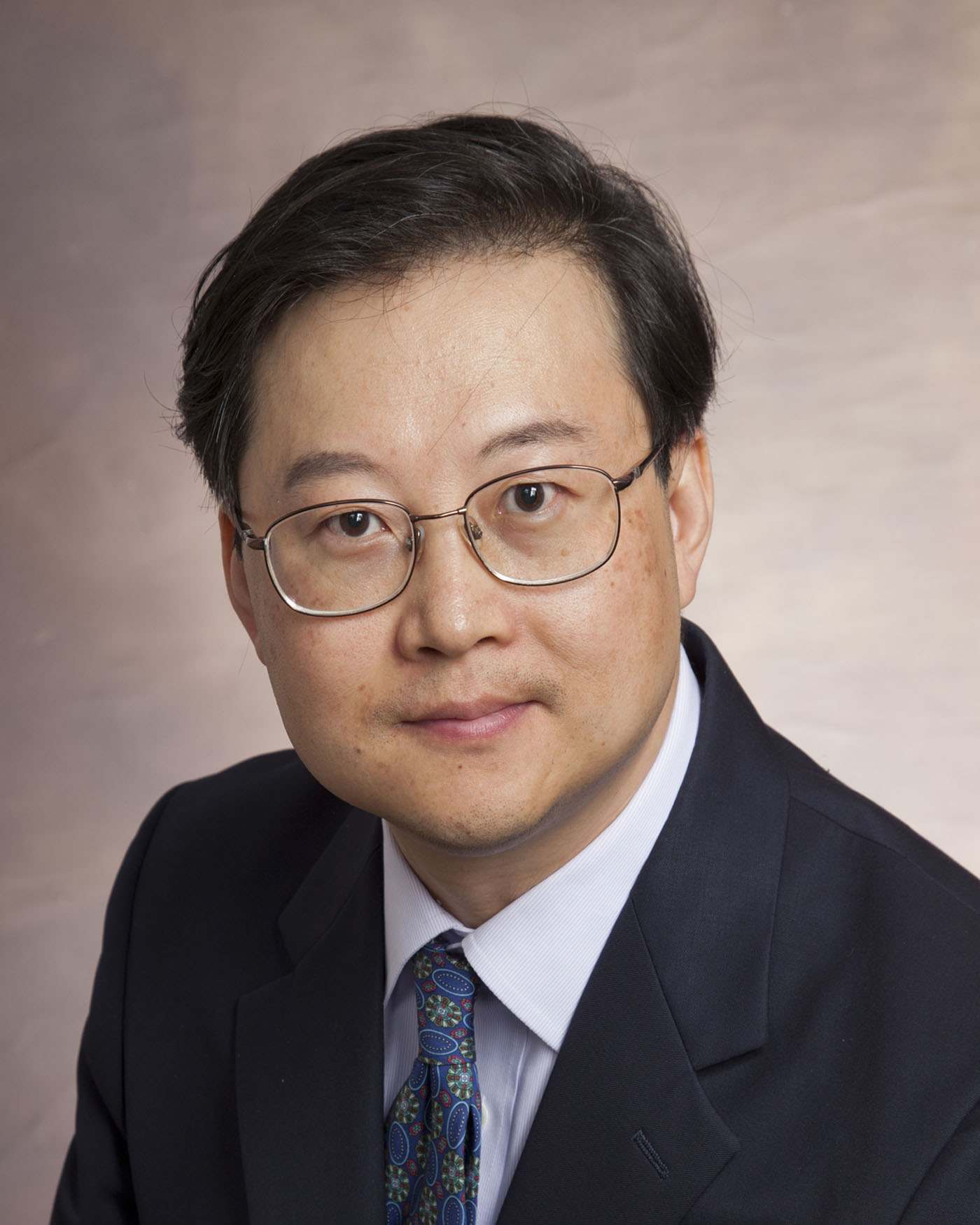
Prof. Tom Hou is the Bradley Distinguished Professor of Electrical and Computer Engineering at Virginia Tech, USA. He received his B.E. degree from the City College of New York, M.S. degree from Columbia University, and Ph.D. degree from New York University (NYU) Polytechnic School of Engineering. From 1997 to 2002, he was a Researcher at Fujitsu Laboratories in California.
Prof. Hou’s research interests are to develop innovative solutions to complex cross-layer optimization problems in wireless networks. He is particularly interested in exploring new limits of network performance by exploiting advances at the physical layer and other new enabling technologies. In recent years, he has been actively working on cross-layer optimization problems for cognitive radio wireless networks, cooperative communications, MIMO-based ad hoc networks and energy related problems.
Prof. Hou was named an IEEE Fellow for contributions to modeling and optimization of wireless networks. He has published two textbooks: Cognitive Radio Communications and Networks: Principles and Practices (Academic Press/Elsevier, 2009) and Applied Optimization Methods for Wireless Networks (Cambridge University Press, 2014). The first book has been selected as one of the Best Readings on Cognitive Radio by the IEEE Communications Society. Prof. Hou’s research was recognized by five best paper awards from the IEEE and two paper awards from the ACM. He holds five U.S. patents.
Prof. Hou was an Area Editor of IEEE Transaction on Wireless Communications (Wireless Networking area), and an Editor of IEEE Transactions on Mobile Computing, IEEE Journal on Selected Areas in Communications – Cognitive Radio Series, and IEEE Wireless Communications. Currently, he is an Editor of IEEE/ACM Transactions on Networking and ACM Transactions on Sensor Networks. He is the Steering Committee Chair of IEEE INFOCOM conference, which is the largest and highest ranked conference on computer networking by Google Scholar.
Overlay Networking in Software-Defined Networks
Benson Schliesser
Brocade Communications, USA
Abstract: Overlay networking has emerged in recent years as a pragmatic approach to software-defined networking. By decoupling the network tenancy and logical topology from the underlying network design, the overlay approach enables network operators to achieve both scale and flexibility goals without sacrificing deployability. This talk will explore the current and future state of overlay networking as a central component of a software networking architecture and a key enabler of network function virtualization. First we will highlight the practical reasons for the emergence of overlay networking as well as some of the technical, commercial, and practical challenges that it has faced. Second we will discuss the current state of overlay network technology including a review of existing protocols, standardization efforts, and open source implementations. Finally, we will explore how overlay networking can be used as a foundation for further development and why it is at the center of future innovation in both research and commercial areas.
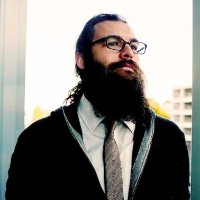
Mr. Benson Schliesser is a Distinguished Engineer at Brocade Communications in the Office of the CTO. He co-chairs the IETF NVO3 working group, serves on the IAOC, and is a Trustee of the IETF Trust. Prior to joining Brocade he held positions at Juniper Networks, Cisco Systems, Savvis Communications, and others. He has previously been on the board of the OpenDaylight Project, has served in various other roles in the IETF, and has over 15 years of experience as a network operator. Benson is interested in network architecture, currently focused on software networking and overlay networks as well as network automation and control.
Panel I: Networking Cyber-physical Applications in a Data-centric World
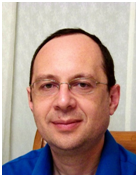
Dr. Tarek Abdelzaher received his B.Sc. and M.Sc. degrees in Electrical and Computer Engineering from Ain Shams University, Cairo, Egypt, in 1990 and 1994 respectively. He received his Ph.D. from the University of Michigan in 1999 on Quality of Service Adaptation in Real-Time Systems. He has been an Assistant Professor at the University of Virginia, where he founded the Software Predictability Group. He is currently a Professor and Willett Faculty Scholar at the Department of Computer Science, the University of Illinois at Urbana Champaign. He has authored/coauthored more than 200 refereed publications in real-time computing, distributed systems, sensor networks, and control. He is an Editor-in-Chief of the Journal of Real-Time Systems, and has served as Associate Editor of the IEEE Transactions on Mobile Computing, IEEE Transactions on Parallel and Distributed Systems, IEEE Embedded Systems Letters, the ACM Transaction on Sensor Networks, and the Ad Hoc Networks Journal. He chaired (as Program or General Chair) several conferences in his area including RTAS, RTSS, IPSN, Sensys, DCoSS, ICDCS, and ICAC. Abdelzaher’s research interests lie broadly in understanding and influencing performance and temporal properties of networked embedded, social and software systems in the face of increasing complexity, distribution, and degree of interaction with an external physical environment. Tarek Abdelzaher is a recipient of the IEEE Outstanding Technical Achievement and Leadership Award in Real-time Systems (2012), the Xerox Award for Faculty Research (2011), as well as several best paper awards. He is a member of IEEE and ACM.

Dr. Azer Bestavros is a Professor in the Computer Science Department at Boston University, which he joined in 1991 and chaired from 2000 to 2007. He is the Founding Director of the BU Hariri Institute for Computing, which was set up in 2010 to “create and sustain a community of scholars who believe in the transformative potential of computational perspectives in research and education.” He is the co-Chair of the Council on Educational Technology & Learning Innovation, which was set up in 2012 to develop BU’s strategy as it relates to leveraging on-line technology in on-campus, residential programs. Azer Bestavros pursues research in the broad areas of networking and real-time embedded systems. His contributions include pioneering the web push content distribution model adopted years later by industry, seminal work on Internet traffic characterization, game-theoretic approaches to cloud resource management, and safety certification of networked systems and software. His research work yielded 4 issued patents, 2 startup companies, and hundreds of refereed papers. He received a number of awards for distinguished teaching, research, and service, including the ACM Sigmetrics Inaugural Test of Time Award for research “whose impact is still felt 10-15 years after its initial publication” and the United Methodist Scholar Teacher Award in recognition of “outstanding dedication and contributions to the learning arts and to the institution.” Azer Bestavros serves as co-chair of the Research, Education, and Outreach Committee of the MGHPCC, and as board member of the Cloud Computing Caucus, a non-profit, non-partisan coalition of industry and key government stakeholders, focused on raising awareness and educating lawmakers and the public on issues associated with cloud computing. He is the former chair of the IEEE Computer Society TC on the Internet and served on the program committees and editorial boards of major computer science conferences and journals. Azer Bestavros obtained his PhD in Computer Science in 1992 from Harvard University, under Thomas E. Cheatham, one of the “roots” of the academic genealogy of applied computer scientists.
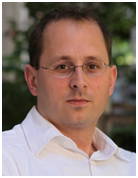
Mr. Jeff Burke is Assistant Dean for Technology and Innovation at the UCLA School of Theater, Film and Television (UCLA TFT), one of the world’s most prominent academic institutions for entertainment and performing arts education. Burke is a three-time UCLA alumnus (B.S., M.S., Electrical Engineering; M.F.A., Film, Television and Digital Media) who has produced, managed, programmed and designed experimental performances, short films, new genre art installations and new facility construction internationally for more than 15 years. Burke has been a faculty member since 2001 and today, in addition to his role developing technology and innovation strategy at TFT, is Co-PI and application team lead for the Named Data Networking project, a multi-campus effort supported by the National Science Foundation (NSF) and an international 25-member consortium to develop a future Internet architecture. In 2004, Burke co-founded UCLA TFT’s Center for Research in Engineering, Media and Performance (REMAP), a collaboration with the Henry Samueli School of Engineering and Applied Science, which combines research, artistic production and community engagement. At REMAP, Burke’s research has been supported by the NSF and NEA, Intel, Cisco, Trust for Mutual Understanding and the MacArthur Foundation, among others. From 2006-2012, he was area lead for participatory sensing at the NSF Center for Embedded Networked Sensing, helping to define a new application arena for mobile devices. In 2014, he received a three-year Google Focused Award on the “Future of Storytelling,” for work that will explore the intersection of storytelling and coding through research and production of original, interdisciplinary digital media works at UCLA TFT.
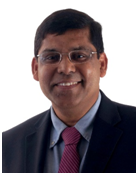
Dr. Sajal Das an IEEE Fellow, is the Chair of Computer Science Department and Daniel St. Clair Endowed Chair in Computer Science at the Missouri University of Science and Technology, Rolla. During 2008-2011, he served the US National Science Foundation as a Program Director in the Division of Computer Networks and Systems. Prior to 2013 he was a University Distinguished Scholar Professor of Computer Science and Engineering and founding director of the Center for Research in Wireless Mobility and Networking (CReWMaN) at the University of Texas at Arlington. His current research interests include theory and practice of wireless and sensor networks, mobile and pervasive computing, cyber-physical systems and smart environments including smart grid and smart healthcare, distributed and cloud computing, security and privacy, biological and social networks, applied graph theory and game theory. Dr. Das has published extensively in these areas with more than 600 research articles in high quality journals and refereed conference proceedings, and 51 invited book chapters. He coauthored four books ‘Smart Environments: Technology, Protocols, and Applications’ (2005), Handbook on Securing Cyber-Physical Critical Infrastructure: Foundations and Challenges (2012), Mobile Agents in Distributed Computing and Networking (2012), and Principles of Cyber-Physical Systems (2015). His h-index is 66 with more than 17,500 citations according to Google Scholar. Dr. Das holds 5 US patents and received 10 Best Paper Awards in prestigious conferences such ACM MobiCom’99, IEEE PerCom’06 and IEEE SmrtGridComm’12. He is also a recipient of numerous awards for teaching, mentoring and research including the IEEE Computer Society’s Technical Achievement Award for pioneering contributions to sensor networks and mobile computing, Lockheed Martin Teaching Excellence Award, and Graduate Dean’s Award of Excellence for mentoring doctoral students. Dr. Das is a frequent keynote speaker at international conferences and workshops. He serves as the Editor-in-Chief of the Pervasive and Mobile Computing journal, and as Associate Editor of IEEE Transactions on Mobile Computing, ACM Transactions on Sensor Networks, Journal of Parallel and Distributed Computing, and Journal of Peer to Peer Networking and Applications. Dr. Das co-founded international conferences like IEEE WoWMoM, IEEE PerCom, and ICDCN, and served on numerous conference committees as General Chair, Program Chair, or Program Committee member.
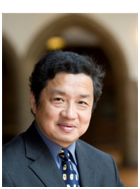
Dr. Jie Wu is the chair and a Laura H. Carnell professor in the Department of Computer and Information Sciences at Temple University. Prior to joining Temple University, he was a program director at the National Science Foundation and was a Distinguished Professor at Florida Atlantic University. His current research interests include mobile computing and wireless networks, routing protocols, cloud and green computing, network trust and security, and social network applications. Dr. Wu regularly publishes in scholarly journals, conference proceedings, and books. He serves on several editorial boards, including IEEE Transactions on Service Computing and the Journal of Parallel and Distributed Computing. Dr. Wu was general co-chair/chair for IEEE MASS 2006, IEEE IPDPS 2008, IEEE ICDCS 2013, and ACM MobiHoc 2014, as well as program co-chair for IEEE INFOCOM 2011 and CCF CNCC 2013. He was an IEEE Computer Society Distinguished Visitor, ACM Distinguished Speaker, and chair for the IEEE Technical Committee on Distributed Processing (TCDP). Dr. Wu is a CCF Distinguished Speaker and a Fellow of the IEEE. He is the recipient of the 2011 China Computer Federation (CCF) Overseas Outstanding Achievement Award.
Distinguished Invited Talk: Tuesday, August 4, 2015
The Promises and the Challenges
Robin Kravets
University of Illinois at Urbana-Champaign
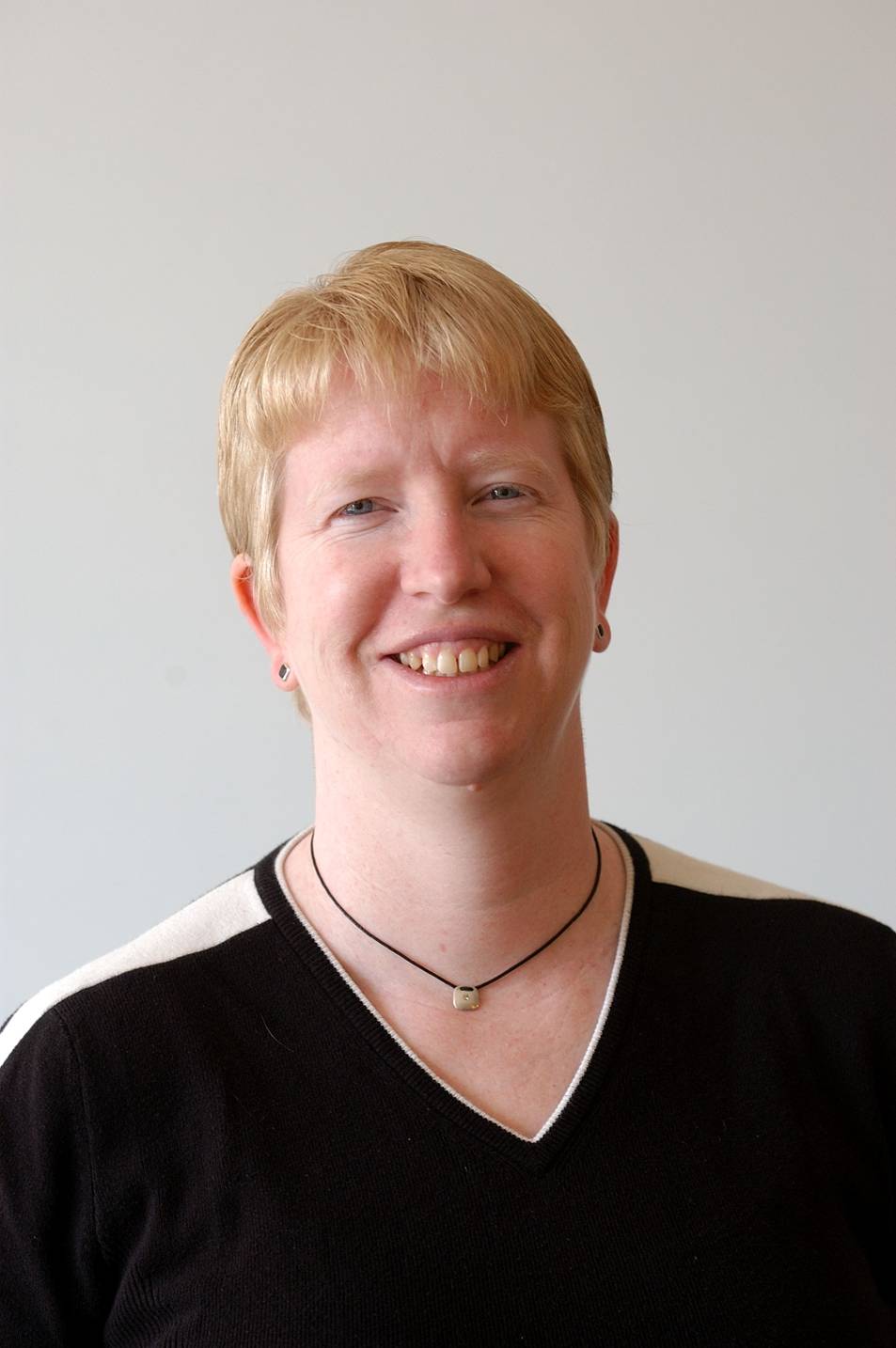
Prof. Kravets is an Associate Professor at the University of Illinois at Urbana-Champaign and the head of the Mobius group, which researches communication issues in all types of networks that are challenged by mobility, including wireless LANs, sensor network, vehicular networks, mobile social networks and personal area networks. Her research focuses on solutions that enable effective power management, connectivity management, data transport, congestion management, location management, routing and security. Her recent research on mobile computing and wireless networking has been funded by the National Science Foundation (NSF), the Office of Naval Research (ONR), Google, HP Labs and Microsoft. She was recently the Technical Program Chair for MobiCom 2013 and has served on numerous program and organizing committees in the area of mobile computing and communications. More information can be found at http://mobius.cs.illinois.edu.
Overview
| August 3 (Monday) | |||||
|---|---|---|---|---|---|
| 7:30 | Registration (in front of room Acacia D). N^2 Women Event, Acacia D | ||||
| 8:30 – 8:50 | Opening Remarks Room: Acacia D |
||||
| 8:50 – 10:20 | Keynote I: 5G Cellular Systems: Research Challenges Speaker: Ian Akyildiz (Georgia Tech) Room: Acacia D |
||||
| 10:20 – 10:40 | Coffee break | ||||
| 10:40 – 12:20 | Session 1 | SPT 1 (4) Palo Verde A |
WAM 1 (4) Acacia D |
CAAME1 (4) Palo Verde B |
|
| 12:20 – 13:30 | Lunch | ||||
| 13:30 – 15:00 | Panel I: Networking Cyber-physical Applications in a Data-centric World Moderator: Tarek Abdelzaher (UIUC) Panelists: Jie Wu (Temple Univ), Sajal Das (Missouri Univ of Sci & Tech), Jeff Burke (UCLA), Azer Bestavros (Boston Univ) Room: Acacia D |
||||
| 15:00 – 15:30 | Coffee break | ||||
| 15:30 – 18:00 | Session 2 | GCIP (5) Palo Verde A |
Invited 1 (4) Acacia D |
CCM 1 (5) Palo Verde B |
|
| 18:30 – 20:30 | Reception, The Loft | ||||
| August 4 (Tuesday) | |||||
|---|---|---|---|---|---|
| 8:00 | Registration (in front of room Acacia D) | ||||
| 8:30 – 10:00 | Keynote II: Some Advances in Wireless Networking for Cyber Physical Systems Speaker: Tom Hou, Virginia Tech Room: Acacia D |
||||
| 10:00 – 10:20 | Coffee break | ||||
| 10:20 – 12:20 | Session 3 | SPT 2 (4) Palo Verde A |
CAAME 2 (4) Acacia D |
WAM 2 (4) Palo Verde B |
|
| 12:20 – 13:30 | Lunch | ||||
| 13:30 – 15:00 | Distinguished Invited Talk: Speaker: Prof. Kravets is an Associate Professor at the University of Illinois at Urbana-Champaign and the head of the Mobius group Chair: Aaron Striegel (University of Notre Dame) Room: Acacia D |
||||
| 15:00 – 15:30 | Coffee break | ||||
| 15:30 – 18:00 | Session 4 | SNPC (5) Palo Verde A |
Invited 2 (4) Acacia D |
CCM 2 (5) Palo Verde B |
|
| 18:30 – 20:30 | Banquet, Acacia A/B/C | ||||
| August 5 (Wednesday) | |||||
|---|---|---|---|---|---|
| 8:00 | Registration (in front of room Acacia D) | ||||
| 8:30 – 10:00 | Keynote III: Overlay Networking in Software-Defined Networks Speaker: Benson Schliesser, Brocade |
||||
| Room: Acacia D | |||||
| 10:00 – 10:20 | Coffee break | ||||
| 10:20 – 12:20 | Session 5 | SPT 3 (4) Palo Verde A |
Invited 3 (4) Acacia D |
SDN (4) Palo Verde B |
|
| 12:20 – 13:30 | |||||
| 13:30 – 15:00 | Session 6 | IOT (3) Palo Verde A |
Invited 4 (3) Acacia D |
CAAME 3 (3) Palo Verde B |
|
| 15:00 – 15:30 | Coffee break | ||||
| 15:30 – 18:00 | Session 7 | GREEN (5) Palo Verde A |
MRN (5) Acacia D |
WAM 3 (5) Palo Verde B |
|
- Privacy-Preserving Optimization of Cross-domain Firewalls with Dynamic Rule Updates
Zheng Qin (Hunan University), Lu Ou (Hunan University), Bruhadeshwar Bezawada (Nanjing University), Xingchen Huang (Hunan University), Sisi Peng (Hunan University), Fei Chen (BloomReach Inc.), Keqin Li (State University of New York, New Paltz), Ann L. Wang (Michigan State University), Fu-Cai Zhou (Northeastern University), Huigui Rong (Hunan University) - Efficient Location Privacy for Moving Clients in Database-driven Dynamic Spectrum Access
Erald Troja (City University of New York), Spiridon Bakiras (City University of New York) - A Privacy-Preserving and Efficient Traffic Jam Information Sharing Scheme for Secure VANET Communication
Zijian Zhang (Beijing Institute of Technology), Cong Guo (Beijing Institute of Technology), Liehuang Zhu (Beijing Institute of Technology), Jie Liu (Capital Normal University), Zhengtao Yu (Kunming University of Science and Technology) - DIAMOND: Distributed Intrusion/Anomaly Monitoring for Nonparametric Detection
Maciej Korczynski (Delft University of Technology), Ali Hamieh (Rutgers University), Jun Huh Ho (Honeywell ACS Labs), Henrik Holm (Forest Glen Research, LLC), Siva Rajagopalan (Honeywell ACS Labs), Nina Fefferman (Rutgers University)
- Distributed Beamforming Relay Selection to Increase Base Station Anonymity in Wireless Ad Hoc Networks
Jon R. Ward (UMBC), Mohamed Younis (UMBC) - Disseminating Authorized Content in Interest-centric Opportunistic Social Networks
Chenguang Kong (Georgia State University), Xiaojun Cao (Georgia State University) - HAEP: Hospital Assignment for Emergency Patients in a Big City
Peng Liu (Hangzhou Dianzi University), Biao Xu (Hangzhou Dianzi University), Zhen Jiang (West Chester University), Jie Wu (Temple University) - RobustGeo: a Disruption-Tolerant Geo-routing Protocol
Ruolin Fan (UCLA), Yu-Ting Yu (Qualcomm Research), Mario Gerla (UCLA)
- OpenFlow Accelerator: a Decomposition-based Hashing Approach for Flow Processing
Hai Sun (Washington State University), Yan Sun (Huawei US Research Center), Victor C. Valgenti (Petabi, Inc.), Min Sik Kim (Petabi, Inc.) - InfoMax: An Information Maximizing Transport Layer Protocol for Named Data Networks
Tarek Abdelzaher (University of Illinois at Urbana Champaign), Jongdeog Lee (University of Illinois at Urbana Champaign), Akash Kapoor (University of Illinois at Urbana Champaign), Md Tanvir Al Amin (University of Illinois at Urbana Champaign), Zeyuan Zhang (University of Illinois at Urbana Champaign), Radhika Goyal (University of Illinois at Urbana Champaign), Zhehao Wang (University of California at Los Angeles) - Snowballing Effects in Preferential Attachment: The Impact of The Initial Links
Huanyang Zheng (Temple University), Jie Wu (Temple University) - Minimizing Bandwidth Cost of CCN: a Coordinated In-network Caching Approach
Yuemei Xu (Beijing Foreign Studies University), Yang Li (Chinese Academy of Science), Tao Lin (Chinese Academy of Science), Wei An (Chinese Academy of Science), Zihou Wang (Coordination Center of China), Song Ci (University of Nebraska-Lincoln)
- Jie Wu (Temple University)
- Sajal Das (Missouri Univ of Science and Tech)
- Jeff Burke (UCLA)
- Azer Bestavros (Boston University)
- Security-Aware Resource Allocation for Mobile Cloud Computing System
Yanchen Liu (The City University of New York, City College), Myung Lee (The City University of New York, City College) - Determining the Hop Count in Kademlia-type Systems
Stefanie Roos (TU Dresden), Hani Salah (TU Darmstadt), Thorsten Strufe (TU Dresden) - TinySet – An Access Efficient Self Adjusting Bloom Filter Construction
Gil Einziger (Technion, Israel), Roy Friedman (Technion, Israel) - Utility-based Uploading Strategy in Cloud Scenarios
Ziqi Wan (Temple University), Jie Wu (Temple University), Huanyang Zheng (Temple University) - HAECubie: A Highly Adaptive and Energy-Efficient Computing Demonstrator
Waltenegus Dargie (Technical University of Dresden), Franz Eichhorn (Technische Universität Dresden), Christoph Möbius (TU Dresden)
- Coalition Formation towards Energy-Efficient Collaborative Mobile Computing
Liyao Xiang (University of Toronto), Baochun Li (University of Toronto), Bo Li (Hong Kong University of Science and Technology) - Task Allocation for Mobile Cloud Computing in Heterogeneous Wireless Networks
Zongqing Lu (The Pennsylvania State University), Jing Zhao (The Pennsylvania State University), Yibo Wu (The Pennsylvania State University), Guohong Cao (The Pennsylvania State University) - SCmesh: Solar-Powered Wireless Smart Camera Mesh Network
Leland Miller (UC Santa Cruz), Kevin Abas (UC Santa Cruz), Katia Obraczka (UC Santa Cruz) - Collaborative Heterogeneous Sensing: An Application to Contamination Detection in Water Distribution
Amitangshu Pal (Temple University), Krishna Kant (Temple University)
- Throughput and Delay Scaling of Cognitive Radio Networks with Heterogeneous Mobile Users
Mario Gerla (UCLA), Pengyuan Du (UCLA), Xinbing Wang (Shanghai Jiao Tong University) - Mitigating bufferbloat with Receiver-based TCP flow control mechanism in Cellular Networks
Xiaolan Liu (Tsinghua University), Fengyuan Ren (Tsinghua University), Ran Shu (Tsinghua University), Tong Zhang (Tsinghua University), Tao Dai (Tsinghua University) - Padded-Dyck-Path-Based Rendezvous Algorithms for Heterogeneous Cognitive Radio Networks
Wei Liang (Shenyang Institute of Automation), Bo Yang (Shenyang Institute of Automation), Meng Zheng (Shenyang Institute of Automation) - Spectrum Sensing for a Subdivided Band in Cognitive Radio Networks
Chunsheng Xin (Old Dominion University), Prosanta Paul (Old Dominion University), Min Song (Michigan Technological University), Yanxiao Zhao (South Dakota School of Mines & Technology) - Truthful Auction for Resource Allocation in Cooperative Cognitive Radio Networks
Xinglong Wang (University of Science and Technology of China), Liusheng Huang (University of Science and Technology of China), Hongli Xu (University of Science and Technology of China), He Huang (Soochow University)
- Detection of Service Level Agreement (SLA) Violation in Memory Management in Virtual Machines
Xiongwei Xie (University of North Carolina at Charlotte), Weichao Wang (University of North Carolina at Charlotte), Tuanfa Qin (Guangxi University) - A Moving Target Defense Approach Based on POF to Thwart Blind DDoS Attack
Duohe Ma (Institute of Information Engineering), Zhen Xu (Institute of Information Engineering), Dongdai Lin (Institute of Information Engineering), Peng Liu (Huawei Technologies CO., LTD), Meng Li (Hong Kong Baptist University) - RIMBED: Recommendation Incentive Mechanism Based on Evolutionary Dynamics in P2P Networks
Mingchu Li (Dalian University of Technology), Jin Xing (Dalian University of Technology), Guanghai Cui (Dalian University of Technology), Jia Liu (Dalian University of Technology), Cheng Guo (Dalian University of Technology), Yongli Gao (Liaoyang Seventh School), Bo Wang (Dalian University of Technology), Xing Tan (York University) - Network Connectivity Graph for Malicious Traffic Dissection
Enrico Bocchi (Politecnico di Torino), Luigi Grimaudo (Politecnico di Torino), Marco Mellia (Politecnico di Torino), Elena Baralis (Politecnico di Torino), Sabyasachi Saha (Narus, Inc.), Stanislav Miskovic (Narus, Inc.), Gaspar Modelo-Howard (Narus, Inc.), Sung-Ju Lee (KAIST)
- Spectrum Assignment in Mesh Elastic Optical Networks
Iyad Katib (King Abdulaziz University), Mahmoud Fayez (Fujitsu Ltd.), George Rouskas (North Carolina State University), Hossam Faheem (Fujitsu Ltd.) - Building and Evaluating COTS Based Optical Interlinks for Nanosatellites
Tarek Idriss (University of Louisiana at Lafayette), Magdy Bayoumi (University of Louisiana at Lafayette) - IPv6 Transition for the Other Billions
Guoliang Han (Tsinghua University), Shuo Liu (Tsinghua University), Congxiao Bao (Tsinghua University), Xing Li (Tsinghua University) - A general analytical model for spatial and temporal performance of bitmap index compression algorithms in Big Data
Yinjun Wu (Tsinghua University), Zhen Chen (Tsinghua University), Yuhao Wen (Tsinghua University), Wenxun Zheng (Tsinghua University), Ge Ma (Tsinghua University), Junwei Cao (Tsinghua University)
- METHOD: a Framework for the Emulation of a Delay Tolerant Network Scenario for Media-Content Distribution in Under-Served Regions
Adriano Galati (Disney Research Zurich), Sandra Siby (ETH), Theodoros Bourchas (Disney Research Zurich), Maria Olivares (Disney Research Zurich), Stefan Mangold (Disney Research Zurich), Thomas R. Gross (ETH) - Capacity Routing based Message Priority for Delay Tolerant Networks
Jianpei Tantai (Beihang University), Yubin Bai (Beihang University), Jian Liu (Beihang University), Wancheng Chen (Beihang University) - Community and Social Feature-based Multicast in Opportunistic Mobile Social Networks
Xiao Chen (Texas State University), Charles Shang (University of Illinois at Urbana-Champaign), Britney Wong (Cornell University), Wenzhong Li (Nanjing University), Suho Oh (Texas State University) - A Packet Size-aware Multi-hop Broadcast Protocol for VANETs Based on Adaptive Redundancy
Celimuge Wu (The University of Electro-communications), Xianfu Chen (VTT Technical Research Centre of Finland), Yusheng Ji (National Institute of Informatics), Satoshi Ohzahata (The University of Electro-communications), Toshihiko Kato (The University of Electro-communications)
- Demonstrating the Threat of Hardware Trojans in Wireless Sensor Networks
Maryam Jalalitabar (Georgia State University), Marco Valero (Georgia State University), Anu G. Bourgeois (Georgia State University) - Tight Bounds on Localized Sensor Self-Deployment for Focused Coverage
Gokarna Sharma (Louisiana State University), Hari Krishnan (Center of computation and technology, Louisiana State University) - D2CS: Dynamic Duty Cycle Scheme in an Opportunistic Routing Sensor Network
Bingxin Niu (Dalian University of Technology), Keqiu Li (Dalian University of Technology), Xiulong Liu (Dalian University of Technology),Weilian Xue (Liaoning Normal University), Heng Qi (Dalian University of Technology) - Clustered Spatio-Temporal Compression Design for Wireless Sensor Networks
Siguang Chen (Nanjing University of Posts and Telecommunications), Chuanxin Zhao (Curtin University), Meng Wu (Nanjing University of Posts and Telecommunications), Zhixin Sun (Nanjing University of Posts and Telecommunications), Jian Jin (The University of British Columbia) - Optimal Deployment of Wireless Sensor Networks for Air Pollution Monitoring
Ahmed Boubrima (INSA-Lyon), Frédéric Matigot (INSA-Lyon), Walid Bechkit (INSA-Lyon), Hervé Rivano (Indria), Anne Ruas (IFSTTAR)
- Energy-efficient opportunistic network coding algorithms for wireless networks
Ki-sung Koo (Iowa State University), Manimaran Govindarasu (Iowa State University) - A More Scalable Approach to Content Centric Networking
J.J. Garcia-Luna-Aceves (UC Santa Cruz and Xerox PARC) - Controlled spectrum sensing and scheduling under resource constraints
Nicolo Michelusi (University of Southern California), Urbashi Mitra (University of Southern California) - Making Dense Networks Work for You
Farhana Ashraf (Google), Robin Kravets (UIUC)
- Energy Efficient Phone-to-Phone Communication Based on WiFi Hotspot in PSN
En Wang (Jilin University), Yongjian Yang (Jilin University), Jie Wu (Temple University), - Towards Effective Intra-flow Network Coding in Software Defined Wireless Mesh Networks
Donghai Zhu (Xi’an Jiaotong University), Xinyu Yang (Xi’an Jiaotong University), Peng Zhao (Xi’an Jiaotong University), Wei Yu (Townson University) - Exploiting Active Sub-areas for Multi-copy Routing in VDTNs
Bo Wu (Clemson University), Haiying Shen (Clemson University), Kang Chen (Clemson University) - Energy Minimization for Cellular Network Interfaces with Dynamic Link Quality
Hai Jin (Huazhong University of Science and Technology), Xiao Lei (Huazhong University of Science and Technology), Zaiyang Tang (Huazhong University of Science and Technology), Peng Li (The University of Aizu), Song Guo (The University of Aizu), Xiaofei Liao (Huazhong University of Science and Technology),Feng Lu (Huazhong University of Science and Technology) - Multiple Service Providers with IP Flow Mobility: From An Economic Perspective
Jun Huang (Chongqing University of Posts and Telecommunications), Yi Sun (Chongqing University of Posts and Telecommunications), Fang Fang (Chongqing University of Posts and Telecommunications), Cong-Cong Xing (Nicholls State University), Yanxiao Zhao (South Dakota School of Mines and Technology), Kun Hua (Lawrence Technological University)
- A Fast Implementation of MPC-KSA Side-Channel Distinguisher
Yongbin Zhou (Chinese Academy of Sciences), Chao Zheng (Chinese Academy of Sciences), Yingxian Zheng (Chinese Academy of Sciences) - REDUCE: Removing Redundancy from Regular Expression Matching in Network Security
Victor C. Valgenti(Petabi, Inc), Min Sik Kim(Petabi, Inc), Sung-Il Oh (Infnis Networks), Inbok Lee (Korean Aerospace University ) - Modeling and Analysis of Availability in Multi-tenant SaaS
Wenbo Su (Tsinghua University), Qu Liu (Tsinghua University), Chuang Lin (Tsinghua University), Sherman Shen (University of Waterloo) - Security Considerations for Negative Acknowledgment in Information-Centric Networking
Alberto Compagno (Sapienza University of Rome), Mauro Conti (University of Padua), Cesar Ghali (University of California, Irvine), Gene Tsudik (University of California, Irvine)
- Siesta: Software-defined Energy Efficient Base Station Control for Green Cellular Networks
Sunae Shin (University of Missouri-Kansas City), Baek-Young Choi (University of Missouri-Kansas City), Sejun Song (University of Missouri-Kansas City) - Synchronized Mutli-hop Scheduling for Real-time Traffic on SDN
Xiang Cao (University of Minnesota), Yingfei Dong (University of Hawaii), David H.-C. Du (University of Minnesota) - Software defined Network Inference with Passive/active Evolutionary-optimal probing (SNIPER)
Mehdi Malboubi (University of California at Davis), Yanlei Gong (University of Electronic Science and Technology of China), Wang Xiong (University of Electronic Science and Technology of China), Chen-Nee Chuah (University of California at Davis), Puneet Sharma (HP Labs) - Comparison of OXC node architectures for WDM and flex-grid optical networks
Jingxin Wu (George Washington University), Suresh Subramaniam (George Washington University), Hiroshi Hasegawa (Nagoya University, Japan)
- Toward Latency-Aware Dynamic Middlebox Scheduling
Pengfei Duan (Tsinghua University), Qing Li (Tsinghua University), Yong Jiang (Tsinghua University), Shu-Tao Xia (Tsinghua University) - OpenRouteFlow: Enable Legacy Router as a Software-Defined Routing Service for Hybrid SDN
Jun Bi (Tsinghua University), Tao Feng (Tsinghua University) - A Framework for Security-Aware Virtual Network Embedding
Yang Wang (La Salle University), Phanvu Chau (La Salle University), Fuyu Chen (SUNY, University at Buffalo) - An Effective Policy Relocation Scheme for VM Migration in Software-Defined Networks
Kun Xu (Tsinghua University), Chuang Lin (Tsinghua University), Zhen Chen (Tsinghua University), Kun Meng (Tsinghua University), Mourad Hakmaoui (Tsinghua University)
- parkITsmart: Minimization of Cruising for Parking
Christos Tsiaras (University of Zurich), Livio Hobi (University of Zurich), Fabian Hofstetter (University of Zurich), Samuel Liniger (University of Zurich), Burkhard Stiller (University of Zurich) - Optimizing load schedule for building energy management in smart grids
Kebina Manandhar (Georgia State University), Xiaojun Cao (Georgia State University) - On Effectiveness of Smart Grid Applications using Co-simulation
Wei Yu (Towson University), Paul Moulema (Towson University), David Griffith (National Institute of Standards and Technology), Nada Golmie (National Institute of Standards and Technology)
- AnonAD: Privacy-aware Micro-targeted Mobile Advertisements without Proxies
Christopher Buckley (University of California, Davis), Parth H. Pathak (University of California, Davis), Aveek Das (University of California, Davis), Chen-Nee Chuah (University of California, Davis), Prasant Mohapatra (University of California, Davis) - Receiver Awareness Contention: Pilot Detection Based Channel Access in Adhoc Network
Xuan Dong (National University of Defense Technology), Chunsheng Zhu (The University of British Columbia), Shaohe Lv (National University of Defense Technology), Siguang Chen (Nanjing University of Posts and Telecommunications), Xiaodong Wang (National University of Defense Technology), Xingming Zhou (National University of Defense Technology), Victor C. M. Leung (The University of British Columbia) - Road Network-aware Anonymization in Mobile Systems with Reciprocity Support
Bhuvan Bamba (Nextdoor, Inc.), Ling Liu (Georgia Institute of Technology), Emre Yigitoglu (Georgia Institute of Technology)
- DOVE: Data Offloading through Spatio-temporal Rendezvous in Vehicular Networks
Munyoung Lee (Seoul National University), Junghwan Song (Seoul National University), Jaehoon Paul Jeong (Sungkyunkwan University), Taekyoung Kwon (Seoul National University) - Quantifying Benefits of Lossless Compression Utilities on Modern Smartphones
Aleksandar Milenkovic (The University of Alabama in Huntsville), Armen Dzhagarya (The University of Alabama in Huntsville), Martin Burtscher (Texas State University, San Marcos), - SocialQ&A: An Online Social Network Based Question and Answer System
Haiying Shen (Clemson University), Guoxin Liu (Clemson University), Nikhil Vithlani (Clemson University)
- Flyover: A Cost-Efficient and Scale-Out Data Center Network Architecture
Sheng Xu (Chinese Academy of Sciences), Binzhang Fu (Chinese Academy of Sciences), Mingyu Chen (Chinese Academy of Sciences), Lixin Zhang (Chinese Academy of Sciences) - DST: Leveraging Delay-insensitive Workload in Cloud Storage for Smart Home Network
Liang Chen (Shenzhen University), Suiming Guo (The Chinese University of Hong Kong), Dah Ming Chiu (The Chinese University of Hong Kong) - FCell: Towards the Tradeoffs in Designing Data Center Network Architectures
Dawei Li (Temple University), Jie Wu (Temple University) - EAFR: An Energy-Efficient Adaptive File Replication System In Data-Intensive Clusters
Haiying Shen (Clemson University), Yuhua Lin (Clemson University) - Robust Energy-Aware Routing with Uncertain Traffic Demands
Lin Heng (Tsinghua University), Xu Mingwei (Tsinghua University), Yang Yuan (Tsinghua University)
- User Experience Driven Multi-Layered Video Based Applications
Hengky Susanto (University of Massachusetts Lowell), Byungguk Kim (University of Massachusetts Lowell), Benyuan Liu (University of Massachusetts Lowell) - Adaptive Forward Error Correction for ECG Signal Transmission for Emtional Stress Assessment
Kun Hua (Lawrence Technological University), Hansong Xu (Lawrence Technological University), Guangchong Zhu (Lawrence Technological University), Jun Huang (University of Posts and Telecommunications) - Faster Web through Client-side DNS Redirection
Utkarsh Goel (Montana State University), Mike Wittie (Montana State University), Moritz Steiner (Akamai Technologies) - pcp: Internet Latency Estimation Using CDN Replicas
Samuel Micka (Montana State University), Utkarsh Goel (Montana State University), Hanlu Ye (Wellesley College), Mike Wittie (Montana State University), Brendan Mumey (Montana State University) - NDN Live Video Broadcasting over Wireless LAN
Menghan Li (Tsinghua University), Dan Pei (Tsinghua University), Xiaoping Zhang (Tsinghua University), Beichuan Zhang (University of Arizona), Ke Xu (Tsinghua University)
- An Agent Based Data Collection Scheme for Vehicular Sensor Networks
Hui Huang (UNSW Australia), Lavy Libman (UNSW Australia), Glenn Geers (National ICT Australia) - Inferring Network Topologies in MANETs Applied to Service Redeployment
Simone Silvestri (Missouri University of Science and Technology), Brett Holbert (Pennsylvania State University), Petr Novotny (Imperial College London), Tom La Porta (Pennsylvania State University), Alexander Wolf (Imperial College London), Ananthram Swami (Army Research Laboratory) - PACTON: Parallelization of Contention and Transmission in OFDM-Based Wireless Networks
Yueyue Chen (National University of Defense Technology), Pin Lv (National University of Defense Technology), Xudong Wang (Shanghai Jiao Tong University), Ming Xu (National University of Defense Technology) - WiG: WiFi-based Gesture Recognition System
Wenfeng He (Shenzhen University), Kaishun Wu (Hong Kong University of Science and Technology), Yongpan Zou (HKUST), Zhong Ming (Shenzhen University) - Adaptive Monitoring for Mobile Networks in Challenging Environments
Nils Richerzhagen (TU Darmstadt), Dominik Stingl (TU Darmstadt), Björn Richerzhagen (TU Darmstadt), Andreas Mauthe (Lancaster University), Ralf Steinmetz (TU Darmstadt)
